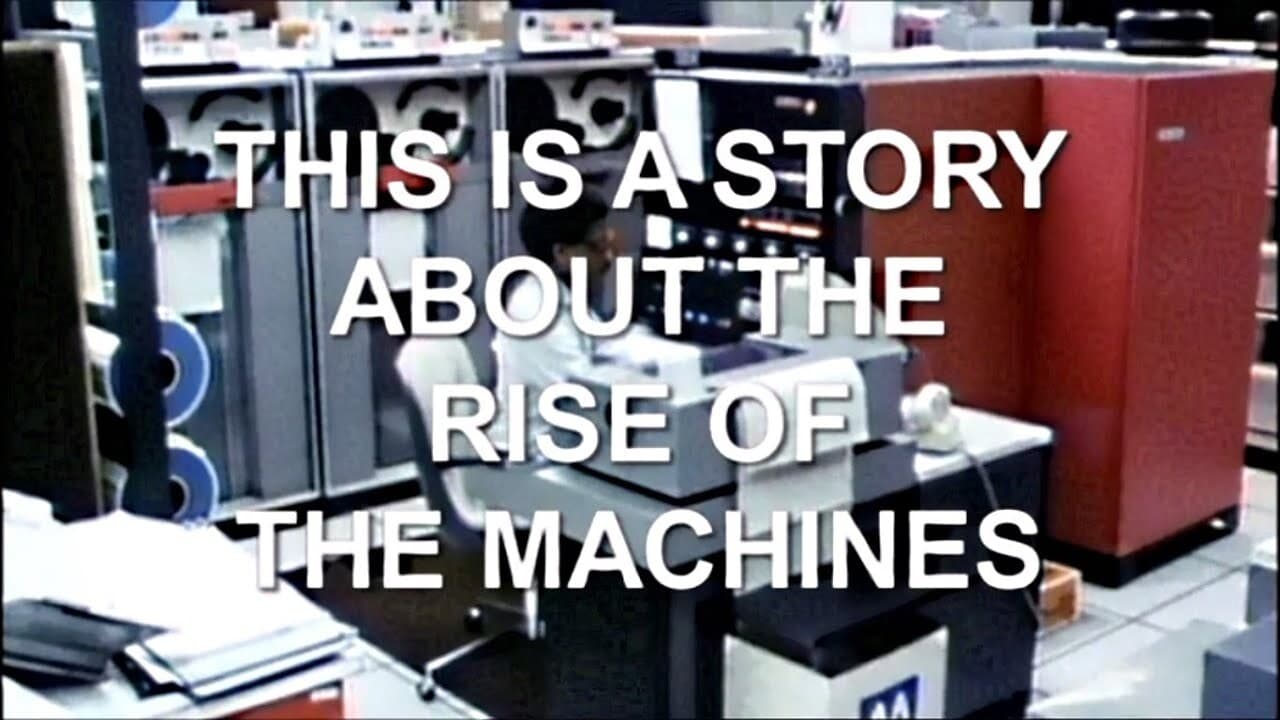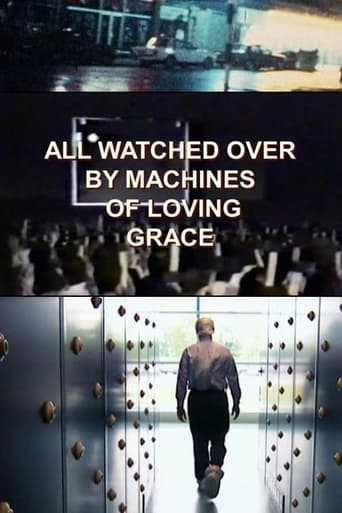

Beautiful, moving film.
... View MoreThe movie's neither hopeful in contrived ways, nor hopeless in different contrived ways. Somehow it manages to be wonderful
... View MoreEach character in this movie — down to the smallest one — is an individual rather than a type, prone to spontaneous changes of mood and sometimes amusing outbursts of pettiness or ill humor.
... View MoreGreat example of an old-fashioned, pure-at-heart escapist event movie that doesn't pretend to be anything that it's not and has boat loads of fun being its own ludicrous self.
... View MoreBombarded with images, sounds, and ideas that at times overgeneralizes and in other instances create bizarre connections, Curtis's documentary is deceptive, its true purpose buried in impressive editing and storytelling. This documentary is not actually a documentary, but is a story about how stories take on lives of their own and infect the imaginations of many human beings, especially those whose influence on the world makes the infections all the more dangerous.Flitting from idea to idea, Curtis weaves a narrative by linking somewhat disparate topics and attempts to convince us, the viewers, that his story is true. The world has been manipulated by an elite via computer networks. The idea of a balance in nature contributes to our misguided attempts at understanding nature. We become machines ourselves in the subjugation and erroneous divisions of colonized territories. But ah, these are just stories.Be careful of stories and ideas, Curtis warns, for they have a habit of dictating reality. In presenting us a somewhat plausible explanation of various events in recent history, he presents a story that may or may not be wholly factual, but satisfies that conspiracy theorist lurking underneath us all. The possibility of us accepting a "story" for "fact" is perhaps the essential point of this documentary. So when viewing All Watched Over, be mindful of that you are watching is simply a narrative about how narratives, if taken too religiously, could have terrible consequences.
... View MoreAdam Curtis' recent documentary series disappointed some. Compared to his work on The Century Of The Self and The Power Of Nightmares, it seemed hodge podge, lacking a central framework idea and bouncing all over the place.After twenty minutes of the first episode, I may have been inclined to agree – the documentary seemed to lack focus and carried over the experimental mix of music and image that had been used so successfully for the interactive theatre piece "It Felt Like A Kiss".However, having seen the full piece, I now beg to differ. If anything, the series is a broader and more satisfying development of areas touched on in his previous pieces, particularly Century Of The Self.As with Curtis' other work, it explores the far reaching and (for the most part) unintended consequences of big ideas. In this case, the idea that nature can be explained and entertainingly presents a series of case studies to explore whether this idea is flawed or not. Unlike his previous pieces, the period under discussion is very recent and the ideas explored so varied that each episode does not really follow a linear timeline and the debates bounce from the 1950s to the 1990s to the 1960s to the present day.This is a powerful and thought provoking piece, Curtis never comes across to me as polemical and seems happier drawing your attention that things may not be quite as they seem rather than hitting you over the head as he proves everything you know is wrong.Everything you know isn't necessarily wrong but it may be that you aren't fully informed of all the facts. The opening sequence may be the the weakest of the series, linking Ayn Rand's ideas of Objectivism to the development of moden computing. However, clever dick that Curtis is, it only becomes apparent with the patience to sit through this that the central character isn't Rand at all but a member of her social circle, Alan Greenspan – who, as chairman of the US Federal Reserve became, through a series of unforeseen events, the most powerful man in the world for a brief period.The subsequent rattle through the economic crises in the Far East in the 90's and the knock on effect to the current economic crisis in the West (and China's part in it) is eye opening to say the least. And it goes on, finding short degrees of separation from a multitude of players on the world stage, linked by the rise and consequences of ideas relating to systems. The second episode then explores the theory of self organising networks through cybernetics, eco politics, the geodesic dome, the 60s counterculture, maximum population growth to the Facebook/Twitter revolutions of the 2000s.I was especially impressed with the final episode exploring the theory of the selfish gene, moving from the initial theory through Anglo- American intervention in the Congo, myths on the origins of the AIDS virus, the Belgians role in the genocide of Rwanda through Richard Dawkins and Dian Fossey.Fascinating stuff and well worth three hours of anyone's time.
... View MoreThis miniseries claims to be about machines and how our use of them and misinterpretation of them has not led to the positive results we'd expected.And of course this is true. I majored in Computer Science, and yet my experiences in the "real world" developing and testing computer software have left me wondering whether this is what we, or at least I, ought to be doing, because it doesn't seem to be making anything better, and I can count the lives made worse by the software I worked on (working correctly). So I was perhaps one of the ideal viewers of this program.However, it doesn't seem to really get into the connection between computers and other machines, and the problems we've let them cause. Instead, he takes human failings, and notices that computers don't fix them, and then blames the computers and the thinking that led to them, for the original human problems. He also doesn't seem to give any credit for humans who correct past errors in thinking, which is a function of philosophy and science.The show seems to come off as fuzzily religious. The "villains" famous enough to already be known to the audience tend to be either atheist or frequent targets of religious fanatics. They are made guilty by association with genocide. It's a not-so-subtle propaganda, with the living accused not given any time to respond.Let me just say that the people who carried out the genocide carry the blame themselves. They believed foreigners who told them they were two separate people, despite their own history. They then decided it was OK to wipe each other out. Even if this idea of genocide came from the Belgians, which is unclear to me, they still accepted it and carried it out. That is their own doing, and is on them, nobody else.I've given this a score as high as 6 because I did find the stories of Ayn Rand and Africa to be interesting, aside from the rest of the content. I'll probably seek out more reliable sources to follow up on that information.
... View MoreI am a fan or Mr. Curtis' previous work but this documentary series was a disappointment for me.The thing I dislike the most is the biased and simple opinion on computers this documentary tries to promote. Apparently "computers" are powerful things that dehumanize our world, we put our faith in computers and they have failed us, completely ignoring the fact that computers are human made, human programmed and human controlled in every aspects. I expected a much more complex and realistic dissection of the topic.This idea is also poorly presented and motivated, for example when briefly talking about the internet, we are presented with the negative opinion of an early internet user, the scene is made in such a way as to suggest that indeed the internet is what that distressed user says. Similar to the cheap techniques a News program would use to influence the public opinion.Throughout the documentary I had the feeling that too much emphasis is put on the soundtrack and on the synchronizing of suggestive footage with music rather than actual relevant content and information.To summarize, "All Watched Over by Machines of Loving Grace" is tendentious, the idea presented is overly simplified and biased. It gave me the impression it was a bad propaganda movie against computers.
... View More